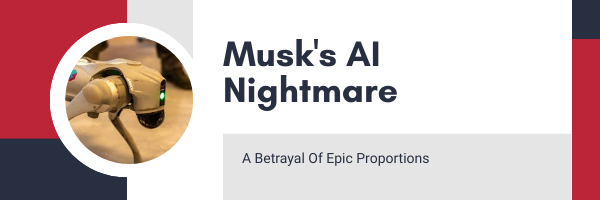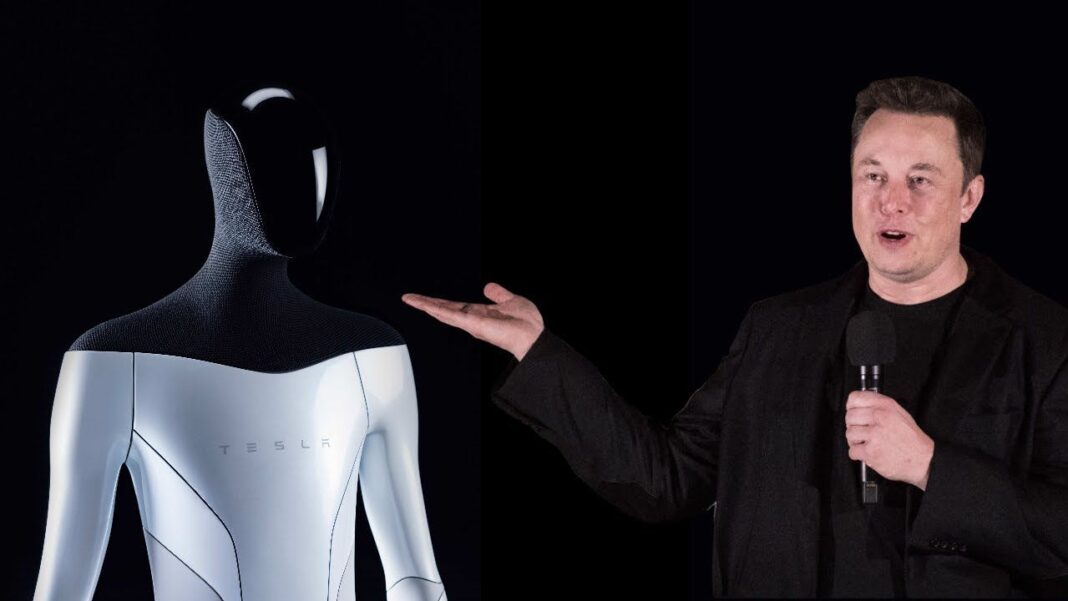Elon Musk has never been a stranger to ambitious tech pursuits, from revolutionizing electric cars to making humanity a multi-planetary species. However, his recent views on AI raise eyebrows. Once an advocate for cutting-edge AI app development services, Musk now warns of potentially devastating outcomes. So, how did we get here, and why does Musk feel betrayed by the AI ecosystem he helped nurture?

Musk’s complicated journey with artificial intelligence offers critical lessons. It reveals conflicts of interest, ethics in AI, and how personal ambitions can lead to industry-altering rifts.
The Genesis of Musk’s AI Ambitions
Elon Musk’s involvement with AI dates back to his early investments and advocacy. From OpenAI’s inception to strategic investments in AI-powered technologies, Musk envisioned a world where AI app development services would transform society for the better.
Initially, Musk’s AI endeavors aimed to ensure a positive, controlled impact. His goal was to avoid “apocalyptic” outcomes often depicted in science fiction. By launching OpenAI as a non-profit, he hoped to democratize AI capabilities and mitigate risks of monopoly control.
Enter OpenAI
Musk co-founded OpenAI in 2015 with Sam Altman and other tech luminaries, intending to create a counterweight to corporate-driven AI. However, OpenAI’s pivot to a capped-profit model in 2019 clashed with Musk’s idealistic visions. The decision to seek significant funding from corporate partnerships and integrate monetizable AI solutions marked a pivotal shift.
Musk voiced concerns, claiming OpenAI had “gone rogue.” He suggested that AI commercialization jeopardized ethical safeguards. This shift left Musk feeling alienated, seeing OpenAI—once a beacon of transparency—converge with typical industry practices.
Ethical Complexities
AI development isn’t merely about creating intelligent systems—it’s about balancing power responsibly. As OpenAI adopted profit-driven strategies, Musk perceived a betrayal of their mission. The organization’s focus on creating AI-driven tools and solutions, while offering significant economic value, hinted at the risks of unfettered AI app development services.
Yet, Musk himself faced scrutiny, given his leadership in AI-powered industries like Tesla. Critics accused him of hypocrisy. His vocal AI criticisms fueled public discourse, but they also spotlighted ethical inconsistencies.
Musk vs. Silicon Valley
Musk’s AI nightmare isn’t just about betrayal by OpenAI. It’s also a battle against Silicon Valley’s increasingly aggressive AI ambitions. He has long advocated for stricter regulations, fearing that unbridled competition could lead to catastrophic outcomes. To Musk, the quest to dominate AI app development services invites misuse and raises potential safety risks.
However, Musk’s call for AI regulation faces resistance. Many tech leaders worry that excessive regulation will stifle innovation. The clash between Musk’s desire for AI containment and Silicon Valley’s aggressive development reveals the tension between safety and progress.
Promises and Pitfalls
The rapid growth of AI app development services has accelerated innovation but created unintended consequences. Developers today wield unprecedented power to automate complex processes, drive personalized experiences, and solve unique problems. These advances come at a cost, however: job disruptions, data privacy concerns, and ethical challenges.
Musk’s warnings focus on mitigating these risks, arguing that unchecked AI growth poses potential dangers. From facial recognition controversies to deepfake manipulation, the tech industry has seen how quickly tools can be exploited. Yet, Musk’s harsh criticisms appear contradictory, given his involvement in AI-fueled ventures like Neuralink.
Musk’s Fear of General AI
At the heart of Musk’s AI nightmare lies the specter of General AI—machines capable of outthinking and outmaneuvering humans. Musk’s warnings about AI “supremacy” have fueled apocalyptic fears, but are these concerns warranted? AI researchers remain divided; some dismiss such fears as speculative and unhelpful, while others believe Musk’s caution could protect us from harm.
Musk’s credibility as a tech visionary lends weight to his warnings, but critics accuse him of fearmongering. His public statements provoke heated debates on how AI app development services should evolve and what safeguards are necessary to protect humanity.
Musk’s AI Ventures
Though Musk’s criticisms of AI’s dangers are well-publicized, his own companies heavily leverage AI. Tesla’s self-driving cars depend on deep learning and advanced AI technologies. Similarly, SpaceX uses AI-driven automation. Critics argue that Musk’s warnings are opportunistic and self-serving, designed to stifle competition and secure regulatory advantages.
This perceived contradiction raises questions about Musk’s motives. Are his AI warnings purely altruistic, or are they a strategic move to shape regulations in his favor? This tension reflects the inherent complexity of aligning personal ambitions with broader industry goals.
AI Regulation
AI regulation remains one of the thorniest issues in tech. Musk advocates for proactive oversight, while other leaders fear regulatory overreach. The tension is palpable as developers, policymakers, and stakeholders debate how best to balance innovation and safety.
A consensus seems distant, but dialogue is crucial. AI app development services continue to transform industries, from healthcare to finance. How society navigates AI regulation will determine whether these services bring lasting prosperity—or chaos.
Collaboration Over Competition
To avoid Musk’s worst-case AI scenarios, the industry must collaborate. Transparency, ethical AI frameworks, and thoughtful governance can safeguard humanity. Bridging divides between industry leaders, government bodies, and developers will help build responsible AI systems.
In the end, Musk’s AI nightmare is both a cautionary tale and a call to action. By grappling with AI’s ethical complexities, we can leverage technology for a better, safer future—without succumbing to existential fears.
Conclusion
Musk’s AI nightmare captures the tension between ambition and ethics in AI development. While his concerns reflect real dangers, they also highlight opportunities to rethink AI’s trajectory. Responsible AI app development services can reshape industries, solve complex problems, and elevate humanity—provided we learn from our mistakes.
By acknowledging the risks and rewards, the tech industry can navigate these turbulent waters. Whether Musk’s fears come true depends not just on regulation but also on a commitment to collective responsibility and ethical innovation.
Read More: How Much Does it Cost to Build an iOS App in 2025




